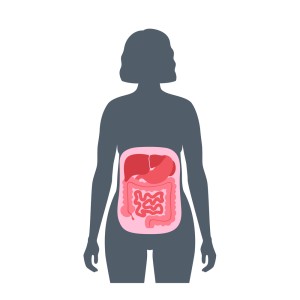How Gut Bacteria May Be Linked to Special Needs: What Research Is Revealing
 Recent research is uncovering a surprising link between gut health and special needs children. Scientists are exploring how the bacteria living in the digestive system, known as the gut microbiota, may affect brain function, behavior, and overall development.
Recent research is uncovering a surprising link between gut health and special needs children. Scientists are exploring how the bacteria living in the digestive system, known as the gut microbiota, may affect brain function, behavior, and overall development.
Gut Bacteria and Special Needs: What’s the Connection?
Many children with special needs also struggle with digestive issues. Studies have found that their gut bacteria differ from those of typically developing children. Certain types of bacteria appear more often — or less often — in children with special needs.
Animal studies suggest that changes in gut bacteria may influence brain activity and behavior. This gut-brain connection is now a major focus of research.
How Gut Bacteria May Affect the Brain
Researchers believe that gut microbes produce chemicals that can interact with the immune system, digestive system, and even the brain. These substances may cause inflammation or interfere with digestion and metabolism — possibly contributing to symptoms seen in children with special needs.
What the Research Found
In a key study, scientists analyzed stool samples from:
* 43 children with special needs (some with digestive issues, some without)
* 31 typically developing children of the same age and gender
Using advanced DNA testing, they searched for microbial markers — pieces of bacteria that the immune system can detect. This provides valuable information about the body’s internal workings.
Key Findings:
* Children with special needs and digestive problems showed more diversity in these microbial markers.
* Researchers identified 34 specific bacterial markers linked to changes in the immune system and gut health.
* Some of these markers came from harmful bacteria that strongly activate immune responses.
* Others closely resembled human proteins involved in autoimmune diseases, raising concerns that the body may accidentally attack its own cells.
This research supports the idea that children with special needs may have unique gut bacteria. These differences could play a role in their immune function, behavior, and overall health.
The 34 bacterial markers found in the study may serve as early warning signs helping doctors detect or better understand certain developmental conditions.
What’s Next: Hope for the Future
Although more research is needed, this study offers new hope. By understanding the gut-brain connection, scientists may discover better ways to support children with special needs, through:
* Targeted diets
* Metabolic supplements
The connection between the gut and brain is stronger than we once believed. As science continues to explore the role of gut bacteria in special needs, we may be getting closer to new ways of diagnosing, treating, or even preventing some symptoms — all starting from the gut.
Read more about what you can do about improving the quality of life for a Special Needs child.
Support for Special Needs Children
Questions? Ask me.
Sign up to receive the MCVitamins Newsletter!
Up-to-date info on the latest health-related news happening in the world
(available in English only)

